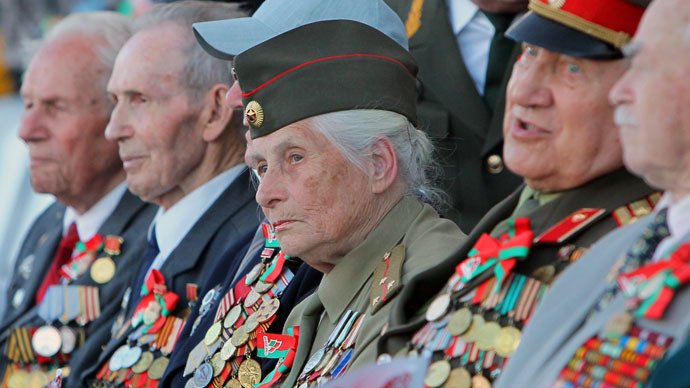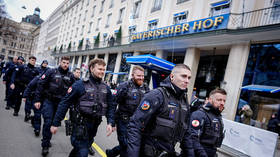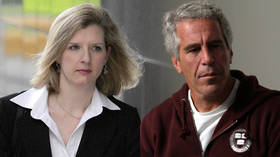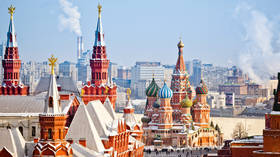Russian nationalists suggest enormous lawsuit against Germany over WWII damages

A lawmaker representing the populist LDPR nationalist party wants to calculate all damages inflicted by Nazi Germany on Russia during World War II, in order to slap Berlin with a lawsuit that could amount to €4 trillion.
“Germany didn’t pay any reparations to the USSR to compensate for destruction and brutalities committed during the Second World War. The Yalta agreement allowed the USSR to seize some German assets from the Soviet occupation sector, but these were mostly industrial machinery, furniture and clothing, that could be considered spoils of war and that could not compensate for the damage inflicted to the Soviet economy by the war,” MP Mikhail Degtyaryov said in an interview with the Izvestia daily.
Degtyaryov also elaborated that after the war the USSR entered an agreement with East Germany to stop reparation payments, but no such treaties were made with the Federal Republic of Germany. This fact makes it legally possible to file a lawsuit against the modern unified Germany, which is the same state.
The MP quoted the verdict of the Soviet government commission that evaluated the damages from WWII as 30 percent of the national wealth. In particular, the Nazi aggressors destroyed 1,710 Soviet cities and towns, 70,000 villages, 32,000 factories and 100,000 collective farms.
In addition to huge material losses, the USSR lost a tremendous amount of people to the war, Degtyaryov noted. “What we have now is that Germany repaid compensations over 6 million victims of the Holocaust but ignored the deaths of 27 million Soviet people, over 16 million of which were civilians,” he said.
According to the lawmaker’s calculations, the total amount of damages could amount to between three and four trillion euros. Degtyaryov noted that other countries, first of all the ex-Soviet republics such as Ukraine and Belarus, could join the process and demand compensation from Germany.
The plan has already received support from other Russian MPs even though they acknowledged that it would be difficult to make Germany pay. “The overall damages received in the war must be calculated. We must know the negative effect of the German aggression to USSR’s development including the non-renewable losses in human capital,” said the head of the Lower House Committee for Defense, MP Vladimir Komoyedov (Communist Party). Komoyedov also noted that the chances of winning were extremely low, but it was still necessary to remind people about history and Russia’s role in it.
However, some lawmakers were extremely critical of the motion. The deputy head of the upper house Committee for Foreign Relations, Vladimir Dzhabarov, said that all reparations issues between the USSR and Germany were settled in 1950s and returning to the issue could only bring problems.
“All we can achieve through bringing up this question is the deterioration of our relations with Germany, which aren’t that good at the moment. Russia has enough problems apart from these reparations,” the Rossiiskaya Gazeta daily quoted the senator as saying.
The chair of the State Duma Education Committee, MP Vyacheslav Nikonov (United Russia) called the LDPR initiative “utter rubbish” in press comments and noted that the stirring up old conflicts was a stupid thing to do at the moment.
“Germany has paid the reparations, mostly it was done by East Germany. This problem has been solved. They stopped paying in 1953,” Nikonov noted.
New initiatives relating to WWII started to appear in the Russian parliament after attempts by some Western politicians to distort history so it could be used against Russia’s interests, particularly in the Ukrainian conflict.












